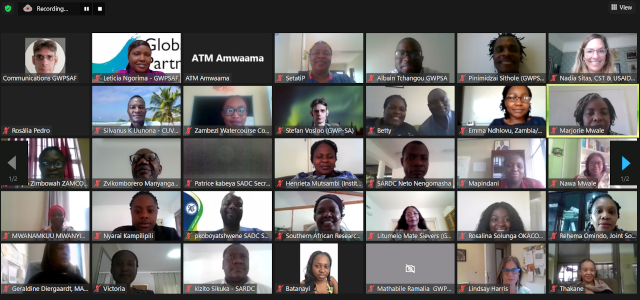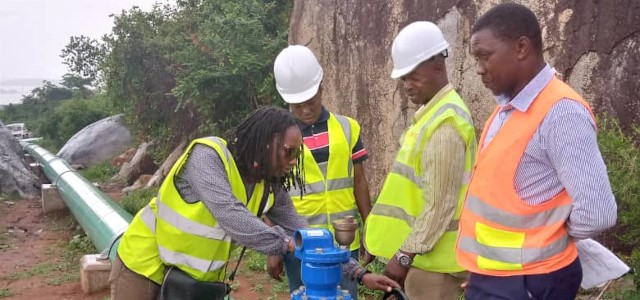Gender mainstreaming in the water sector is instrumental to the delivery of sustainable development and will contribute to economic growth and equity. This was one of the key outcomes of the Gender Session for the 9th SADC River Basin Organisations/Shared Watercourse Institutions (RBOs/SWIs) Workshop, which took place virtually on 21 September 2021 under the theme: ‘Integrating gender equality and social inclusion (GESI) into water programs of the SADC RBOs/SWIs and Member States’.
“To ensure that gender is mainstreamed in the Water Sector, the SADC Secretariat has developed instruments such as the Revised SADC Protocol on Shared Watercourses, the SADC Regional Water Policy, the SADC Regional Water Strategy, and the Southern African Vision for Water, Life and Environment in the 21st Century,” said Dr. Patrice Kabeya, Senior Programme Officer: Water Division in the SADC Directorate for Infrastructure and Services.
The recently held SADC Gender session forms part of a series of workshops that have been convened by the SADC Secretariat, with support from GWPSA, in order to equip gender focal points (GFPs) within SADC water and gender ministries with the knowledge, skills, and tools to mainstream gender considerations into the design and delivery of water policies, programmes, and projects.
“This year’s gender session refreshed understanding of gender equality and social inclusion in relation to water and climate-resilient investments,” said Ms. Leonissah Munjoma, acting Executive Secretary for the Zambezi Watercourse Commission (ZAMCOM), which co-convened the event.
‘’Participants had the opportunity to share experiences on gender mainstreaming into water investments and Gender Transformative Approach (GTA) in the development and implementation of gender-responsive budgeting (GRB),” added Ms. Munjoma.

Participants at the Gender Session for the 9th SADC RBOs/SWIs Workshop
Through the session, member states and other stakeholders shared experiences, challenges and lessons learned on the integration of Gender Equality and Social Inclusion (GESI) in water investments and climate resilience building.
GESI is a step toward reducing gender inequalities and achieving gender equality and social inclusivity. A detailed analysis of gender dynamics, which include constraints faced in accessing, managing and sustaining water interventions and climate information as well as power relations, guides in formulating mechanisms to move countries towards gender equality.
“The first step in gender and social inclusion integration is a gender analysis, an analytical process that helps visualise and identify differences and similarities,” said Ms. Litumelo Mate-Sievers, Gender Specialist at GWPSA.
“The analysis will help organisations and member states identify their position in the Gender Continuum which ranges from a position of being gender blind/ hostile /unequal to being gender transformative”
Building capacity on GESI in transboundary water resources management plays a significant role in entrenching gender-responsive practices.
“The upcoming GESI training for Transboundary Management is set to enhance the understanding of key terms and concepts of GESI and strengthen the capacity of participants to mainstream GESI into project preparation, implementation and reporting processes,” said Ms Vimbai Chasi, USAID Resilient Waters’ Program Coordinator and GESI Advisor.
The Gender Session was attended by more than 100 participants who included representatives from RBOs, SWIs Gender Focal Points from the Ministries of Water, Gender Machineries of SADC Member States, and water experts from the Ministries of Water. It was organized by the SADC Water Division, in partnership with the Zambezi Watercourse Commission (ZAMCOM), the USAID Resilient Waters Program, and Global Water Partnership Southern Africa (GWPSA).
For more information on the proceedings of the session please visit the ZAMCOM website.
Photo credit: Joy Makumbe and GWPSA
